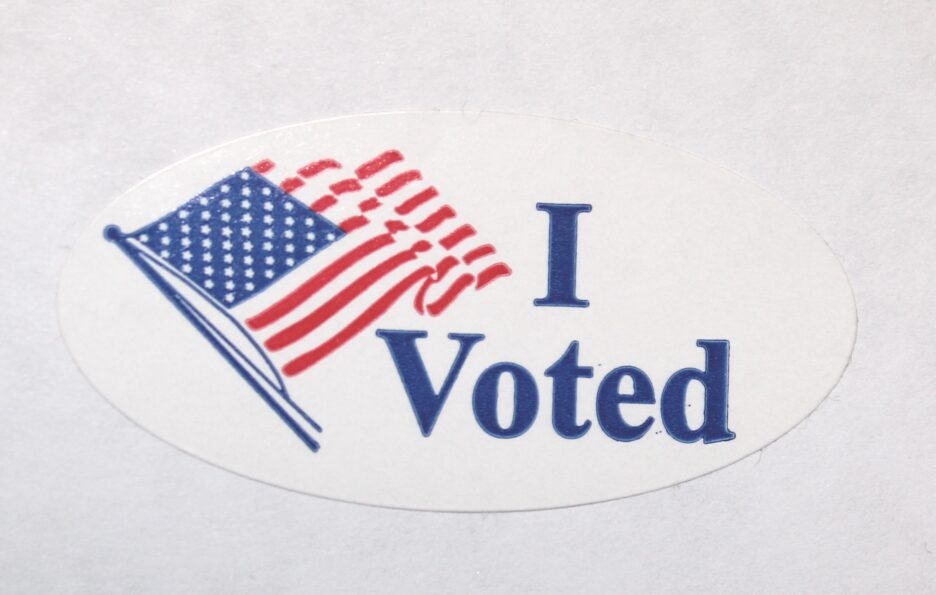On Election Day, a young woman walks into her polling place at Malloy East Winston Heritage Center. She says she is there for one reason and one reason only: to preserve the Democratic majority in the U.S. Senate and House of Representatives.
Many of the voters Heard it Here spoke on Election Day were driven to the polls by national trends. One voter said she was voting because as a Black lesbian, she was unhappy with the rightward shift in the country’s politics. Another voter was concerned about her rights.
“It’s very important to vote,” she said. “I need my Hispanic rights.”
These voters are some of the 49.4% of registered voters in the county who cast a ballot in the 2022 midterms, the first time turnout has been this low since 2014.
Heard It Here spoke with voters across two of the three precincts at which downtown residents could vote — the heritage center and Rupert Bell Neighborhood Center (the third location, which Heard it Here was not present at, was Brunson Elementary School). One thing that was missing in most of our conversations with voters was local politics. When I asked each of the voters mentioned above if they were following any of the local races closely, they all replied that they either did not know or did not care about the 20 non-national races on the ballot.
Local elections are crucial and often represent how national issues play out in our backyard. For example, debates about school curricula play out in school board meetings, and decisions on whether to charge a person who has received an abortion are made by the district attorney — both hyperlocal offices The issue is that not many people know how important our local elected officials are. While Tip O’Neil’s famous quip that “all politics are local” rings true, the outreach on local issues just is not there.
The blame might also fall on the media. Coverage on local races from outlets like the Winston-Salem Chronicle were largely mum on local elections, and the Winston-Salem Journal, while thorough, largely failed to explain why local races were important. Some of this is not the fault of news outlets, to be sure. Local journalism funding is at an all time low, and there is only so much a limited reporting team can do. However, when the media and candidates do not fulfill their responsibility to educate voters on local races, people don’t end up making their voices heard.
Take, for example, the story of turnout at Crystal Towers this election.
In May, primary elections for the midterm elections were underway, and Housing Justice Now member and activist Phil Carter was running for Forsyth County Commissioner. Carter was instrumental in a deal to halt the sale of Crystal Towers, which would have displaced the complex’s 200-plus residents, many of whom rely on low-income housing to keep a roof over their heads. According to sociology professor and Housing Justice Now member Dan Rose, during early voting and on Election Day for the May primaries, Crystal Towers residents went to the polls to vote for Carter and to make their voices heard.
Rose said that many of those voters may have stayed home in the Nov. 2022 general election. Rose works with an organization called Crystal Towers United to get residents to the polls. He said that in May, 30 residents requested a ride to the polls. In November, only 15 residents made the same request.
“I don’t think any of the candidates from either party visited Crystal Towers or had volunteers canvassing Crystal Towers, so that folks would even know who these folks are that are running for office,” Rose told Heard it Here. “And I think there’s a real failure of our political leaders to even connect with voters like the ones that Crystal Towers, give them … a little information about who they are, aside from all these crazy ads that you see on TV.”
But maybe this was just a lack of outreach to voters at Crystal Towers (which would be bad enough). Maybe the outreach to the rest of downtown was better. Alas, in post-election interviews downtown, multiple residents said that they had heard nothing from or about local candidates.
“I didn’t hear anything [from local candidates],” one voter who attended WInston-Salem State but lives downtown said.
Another voter, also a Winston-Salem State student, mentioned a website called VOTE411 which has information on local races. This is a great service, but people should not need to seek out information about the candidates running in their own backyard.
In all, maybe the solution to Forsyth County’s low turnout is giving the people something to vote for — giving the people a direct link from their ballot to improvement in their backyard or neighborhood. Maybe the messaging in the next election cycle needs to be more about the 336 than the goings-on of a building 336 miles away.*
*According to Google Maps, the U.S. Capitol is 336 miles away from Winston-Salem’s Innovation Quarter
Correction: An earlier of this version misstated Triad City Beat’s level of coverage on local races. That error has been corrected. Additionally, more context on which polling places Heard it Here reported at was added.
